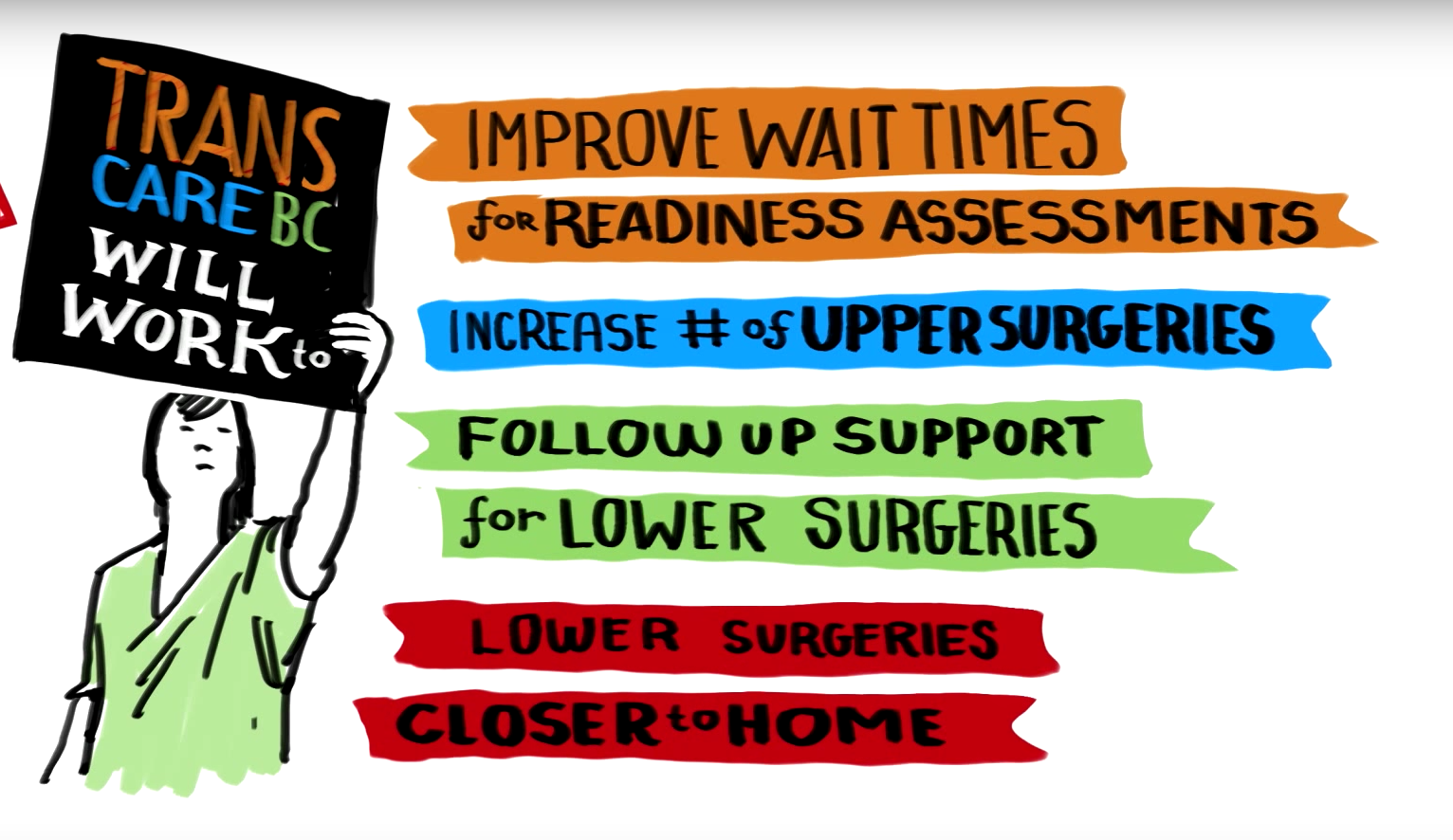Like this article? rabble is reader-supported journalism. Chip in to keep stories like these coming.
Transgender rights in Canada are gaining attention, including the introduction of Bill C-16. However, one issue the community is still facing is the need for quality, trans-competent health care across the country.
British Columbia has been leading the way on this front, establishing Trans Care B.C. as a program of the Provincial Health Services Authority in the fall of 2015. It’s the first province-wide system for transgender health care in the country. Almost a year later, change has been slowly progressing.
James Kelly is a member of Vancouver’s trans* community and has experienced first hand some of the problems with health care in the province. He says Trans Care B.C. is a step in the right direction but there is still a long way to go.
“I think there is forward movement but it’s incredibly slow and at this point it’s not responsive to the needs,” he says.
Kelly says issues include long waitlists and travel for surgery. He says it can also be difficult to find a trans-competent GP in Vancouver let alone in rural areas.
After Kelly waited over two years for top surgery he ended up travelling to the United States for the procedure and paid out of pocket.
“I was like, okay, I need to move on with my life so I’ll pay thousands of dollars to go to the States,” he explains. “In the States there’s choice in surgeons, there’s not just one or two surgeons available, there’s a multitude of highly experienced, competent surgeons available.”
He acknowledges that not everyone wants to access hormones or surgeries, but for those who do, access to this care is crucial for quality of life.
“For myself accessing top surgery was really important,” he says. “I was binding which is very uncomfortable and not good on your body, I had a lot of dysphoria around the way that my body looked and it was just very challenging to move forward.”
Currently the Centre métropolitain de chirurgie in Montreal is the only place in Canada that performs bottom surgery. While MSP covers these surgeries there remain costs for travel and time away from work as well as concerns about aftercare.
In an attempt to raise public awareness about issues with accessing gender affirming care, Kelly is petitioning the B.C. Ministry of Health for “Safe Timely Health Care for Transgender People.” It asks for increased access to MSP funding for out-of-province and out-of-country surgeries, and to expedite plans to create a surgical centre in B.C.
“Access to gender-affirming care for many people can be the difference between life or death,” he says. “Having barriers to gender-affirming care definitely impacts people’s not only physical well being but their emotional and mental health.”
Lorraine Grieves is the provincial program director for Trans Care B.C. and says one of their main priorities is providing surgery closer to home, but there are a number of steps involved. She says they’ve set a three-to-five-year goal to have it completed.
Since it is the first time transgender health care has been brought under a provincial program, some work has also gone into reviewing the current supports and services, and needs of the community. Recommendations for the program were developed by a steering committee of community stakeholders in the fall of 2014.
“We’re kind of doing the next steps around all of those recommendations,” explains Grieves. “Gathering more detail, getting into action planning around it and doing wherever we can do something quickly that makes a concrete difference to a patient or client, we’re trying to do that.”
They have already made some progress in their goals to better serve the transgender community. There are now two surgeons that perform chest surgery in Victoria, as well as funding for a six-to-seven-day stay after surgery in Montreal. Two existing programs the Transgender Health Information Program and C.A.L.L. Out! are also being integrated with Trans Care B.C.
Most recently they have hired a clinical resource team to address concerns with surgical aftercare. The team is reaching out to those with plans for surgery in Montreal to provide care coordination and make sure they have medical support when they come back to B.C.
“These are pretty serious surgeries and the aftercare’s quite specific and ongoing for people. Knowing all the steps in that process and having the tools to heal and the resources to help with healing are really important,” points out Grieves.
“We see it as a very high priority to make sure everybody has a plan and resources to heal safely and make sure their surgical care goes well.”
Emily Blake is rabble’s current blogs intern.




